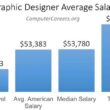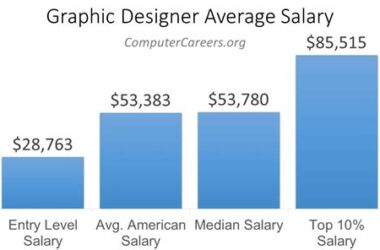In recent years, discussions surrounding teacher salaries have intensified, sparking reflections on the value of education and the dedication of its practitioners. The noble profession has come under scrutiny regarding its compensation, raising questions about educators’ economic standing. Exploring average teacher pay reveals significant variations across regions, both domestically and globally. Analyzing salary trends over the past decade offers insights into the trajectory of educator compensation, while comparing earnings with other professions provides valuable context. Understanding these dynamics is crucial for advocating for fair recognition of teachers’ contributions to society’s development and future. Explore regional teacher pay scales, track salary trends, and gain valuable insights to broaden your understanding now!
Average Teacher Pay Across Different Regions
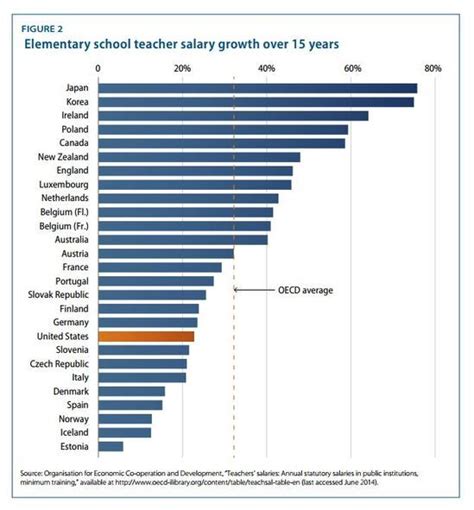
Teacher salaries have long been a subject of debate and analysis across the educational landscape, as they provide insight into the valuation of teaching as a profession. The average teacher pay varies widely across different regions, reflecting the economic circumstances, cost of living, and varying budget priorities of states and school districts. Analyzing these disparities is critical for understanding the broader context of educator compensation and for policy development aimed at ensuring equitable compensation for teachers.
When discussing teaching profession earnings, one cannot ignore the intricate patchwork of regional differences that contribute to the fluctuation in pay scales. For instance, rural areas might struggle with lower tax bases, often resulting in lower salary offerings compared to their urban counterparts, where the higher cost of living and competition for qualified professionals tend to inflate teacher salaries. This geographical dichotomy extends to considerations beyond base pay, such as benefits and support for continuing education, which further complicates the conversation around teacher salary trends.
Moreover, the evolution of teacher salary trends over time reflects broader economic conditions, such as inflation, housing markets, and demographic changes which can have pronounced effects on the demand for teachers and, consequently, their salaries. Furthermore, state-level policy changes, such as modifications to funding formulas and the prioritization of education in state budgets, play an outsized role in shaping the landscape of teacher pay and benefits, making cross-regional comparisons a complex but necessary endeavor.
In conclusion, addressing the disparities in average teacher pay across regions is crucial, not only for the fiscal security of educators themselves but also for the quality of education provided to students. As districts and policymakers consider adjustments to educator compensation, the data emerging from these regional analyses will prove to be invaluable in crafting strategies that attract and retain high-quality teachers, thus ensuring a robust and competitive teaching workforce for the future.
Navigating Teacher Salary Trends Over the Decade
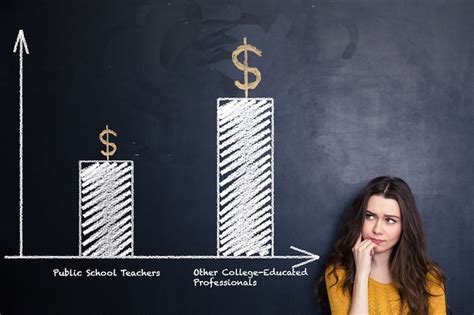
Analyzing the evolution of teacher salaries over the past decade reveals a complex picture influenced by economic factors, policymaking, and societal value placed on the teaching profession. While teacher salary trends have shown some growth, it is often argued that this pace fails to match the increasing demands and expertise required in the field of education. Scrutinizing these trends not only sheds light on the economic realities faced by educators but also helps to inform discussions surrounding fair educator compensation.
Throughout various regions, the average teacher pay can vary significantly, with disparities observed not only between states or provinces but also between urban and rural areas. When adjusting for inflation, some may conclude that the earning power of teachers has only modestly improved, if at all, which poses a challenge for retaining quality teachers and attracting new professionals to the teaching profession. The fluctuations witnessed in educator compensation also mirror wider economic trends and the prioritization of educational funding in governmental budgets.
A closer examination of teacher salary trends within the last ten years indicates a series of ebbs and flows, often influenced by legislation such as salary caps or freezes, performance-based incentives, and union negotiations. These legislative actions have a significant impact on the public perception of the profession as well as the financial viability of teaching as a long-term career. It is crucial to maintain a balance wherein teacher salaries are reflective of the critical role educators play in shaping future generations, and commensurate with their level of education and responsibility.
Comparing the earnings within the teaching profession to other fields with similar education requirements provides an additional angle from which to assess the adequacy of teacher pay. While some argue that the benefits and job security associated with teaching may compensate for lower wages, it is clear that in many regions, educator compensation does not keep pace with other professions, thereby challenging the competitiveness and appeal of the teaching profession.
Comparing Teaching Profession Earnings to Other Fields
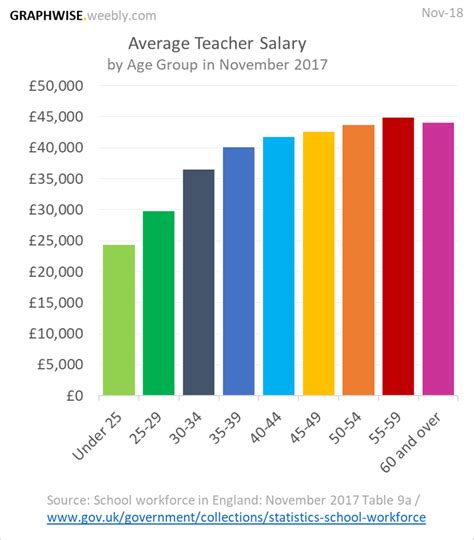
When examining the teaching profession earnings in comparison to other fields, it’s evident that the financial rewards can vary dramatically. Indeed, educators often enter the field with a passion for shaping young minds, yet it is essential to acknowledge that the educator compensation packages across different sectors may not always align with the intrinsic value of teaching. Consequently, many advocate for a reassessment of teacher salaries to bridge this gap.
Within the landscape of professional remuneration, teacher salary trends have shown some increase over the years, yet the pace of this growth is often eclipsed by that of other professions. This disparity becomes starkly apparent when average teacher pay is set against the backdrop of industries like technology, finance, and healthcare, where salaries can potentially dwarf those in education, despite the critical societal importance of the teaching profession.
Discussing teacher salaries in the context of other fields also brings to light the level of education and specialization required in teaching, which often requires advanced degrees and continuing education. It’s not uncommon for teachers to pursue higher education, not only to improve their skills but also in the hopes of attaining better educator compensation. Unfortunately, the investment in their professional development does not always result in commensurate increases in earnings.
It’s crucial for policymakers to scrutinize the comparisons between teaching profession earnings and those of other fields. Acknowledging the discrepancies is the first step toward addressing the question of why the individuals dedicating their careers to educating future generations are often not rewarded in parity with other professionals. As the dialogue on average teacher pay continues, the hope is that broader recognition of teachers’ valuable contributions will lead to substantial reforms in teacher compensation.
Frequently Asked Questions
What is the current average salary for teachers in the United States?
As of my knowledge cutoff in 2023, the average salary for public school teachers in the United States was around $65,000 per year. This figure can vary significantly based on the state, district, years of experience, and level of education.
How does teacher compensation compare with other professions requiring similar education levels?
Teachers often earn less than professionals in other fields with comparable education requirements. For instance, individuals with a master’s degree working in business, healthcare, or engineering typically have higher average salaries than those in teaching positions.
Are there any common benefits included in teacher compensation packages?
Yes, teacher compensation packages commonly include benefits such as health insurance, retirement plans, paid leave, and sometimes tuition reimbursement or professional development opportunities. The specifics can vary by school district.
Have teacher salaries increased in recent years?
Teacher salaries have seen modest increases in recent years; however, when adjusted for inflation, the growth in many areas has been relatively stagnant. Additionally, the rate of salary increase often does not match the rising cost of living.
What factors can affect a teacher’s salary?
Factors affecting a teacher’s salary include geographic location, years of experience, level of education (such as a master’s degree or doctorate), certifications held, subject taught, and the specific policies of the school or district.
Do high school teachers typically earn more than elementary school teachers?
High school teachers do often earn slightly more than elementary school teachers, reflecting the specialized subject knowledge required at the high school level. However, this difference is not universal and can vary by district and state.
Are there salary differences between public and private school teachers?
Yes, there are often salary differences between public and private school teachers. Public school teachers generally receive higher salaries and better benefits, while private school teachers may have smaller class sizes and less bureaucracy, though this can vary greatly depending on the specific school.

